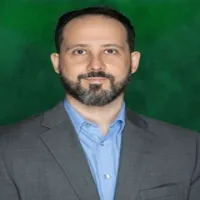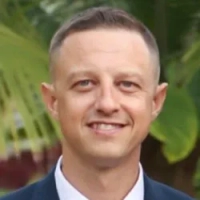How to Equip Teams With Skills for Efficient and Effective Work
Unlock the full potential of your team with proven strategies and expert insights. This article dives into the essentials of equipping teams with the right skills for peak efficiency and efficacy, guided by advice from leading industry professionals.
- Personalized Training Needs Assessment
- Structured Mentorship Framework
- Tailored Development Plans
- Real-World Simulations
- Collaborative Case Review Program
- Monthly Innovation Lab
- Cross-Functional Mentorship Programs
- Data-Driven Training Workshops
- Interdisciplinary Skills Workshops
- Interactive Security Training
- Personalized Training and Continuous Support
- Structured Shadowing Sessions
- Real-World Scenario Training
- Cross-Training and Simulation-Based Training
- Tailored Training Program
- Quarterly Skill Reviews
- Cross-Functional Collaboration and Hackathons
Personalized Training Needs Assessment
To ensure my team develops the skills they need, I draw on my medical training to take a diagnostic approach to team development. At Profit Leap, I implemented a personalized training needs assessment. This involved gathering data from employees and managers, analyzing job roles and industry trends, and then compiling prioritized training needs.
One effective method was designing customized workshops that align closely with our business goals. For example, we created an intensive 3-month communication training program that used role-playing scenarios to improve clarity and collaboration among team members. This approach not only improved team dynamics but directly contributed to a 40% increase in project efficiency.
I also focus on continuous learning and development within my organization. By regularly coordinating with our product development teams, we conduct quarterly training sessions that keep everyone updated on the latest features and receive real-time feedback. This not only helps refine our processes but ensures that we're always prepared to adapt to new challenges and opportunities in the business landscape.

Structured Mentorship Framework
Mentorship programs have always been a cornerstone of how I ensure team members are equipped with the skills and confidence they need to perform at their best. I deeply believe in the transformative power of mentorship, not just for the mentee but also for the mentor. Pairing individuals who are newer to their roles with experienced professionals creates an invaluable opportunity for growth, collaboration, and knowledge-sharing that goes beyond traditional training methods.
One approach I've implemented is creating a structured mentorship framework, designed to provide a clear roadmap for both mentors and mentees. The program begins with identifying specific goals, skills to be developed, and areas of expertise that align with both participants. From there, it incorporates regular one-on-one sessions, periodic check-ins to track progress, and defined milestones to ensure measurable outcomes. This structure allows for a customized experience, ensuring that the mentorship addresses real-world challenges and builds practical skills.
Beyond technical expertise, I emphasize the importance of interpersonal growth through mentorship. Mentees benefit not only from learning the intricacies of their roles but also from developing critical soft skills such as communication, emotional intelligence, and problem-solving. At the same time, mentors enhance their leadership abilities, learning how to guide, inspire, and coach effectively. I encourage mentors to share not just their successes but also the lessons learned from their own challenges, creating a sense of relatability and trust that strengthens the relationship.
The result is a mutually beneficial experience that extends beyond the mentor and mentee. These relationships foster a culture of growth and accountability, benefiting the entire team. Mentorship serves as a powerful tool to build a resilient, skilled workforce prepared to navigate challenges collaboratively and with confidence.

Tailored Development Plans
Ensuring team members have the skills and training they need begins with a clear understanding of their individual roles and how these align with the company's goals. Over the years, I've developed a structured approach that focuses on identifying skill gaps through regular performance evaluations and creating tailored development plans. This process involves leveraging my expertise in operational efficiency and workforce management, which I honed while scaling my telecommunications company and later coaching hundreds of business owners globally. My MBA in finance also plays a key role, as it helps me tie training investments directly to measurable outcomes like productivity gains and profitability improvements. One standout example involved a mid-sized retail business I coached in the UAE. They were experiencing bottlenecks in their logistics team, causing delayed shipments and customer dissatisfaction. I implemented a three-step strategy: first, conducting a detailed analysis of their workflow and identifying key inefficiencies; second, partnering with a local training provider to create a customized supply chain management program; and third, introducing a mentorship system where senior employees guided newer team members through practical challenges. Within six months, the team's efficiency improved and customer complaints dropped. My experience with building and managing teams across different industries and countries enabled me to diagnose the root issues quickly and execute a solution that not only addressed immediate problems but also fostered long-term capability building. This example highlights how combining targeted training with strategic leadership creates sustainable success.
Real-World Simulations
Real-world simulations have been a cornerstone of my approach to equipping team members with the necessary skills and confidence to perform their roles effectively, particularly in the challenging field of mental health and addiction treatment. I've always believed that practice is not just preparation, it's transformation. Especially in high-pressure scenarios, simulations provide team members with a space to bridge theoretical knowledge and practical application in a supportive, low-risk environment.
These exercises are designed to replicate the complexities and emotional demands of real-world situations, offering staff the opportunity to engage with scenarios they're likely to encounter in their roles. Whether it's responding to a high-acuity crisis, facilitating a therapeutic group, or managing delicate interpersonal dynamics with clients, simulations help team members refine critical skills like problem-solving, communication, and adaptability.
One example of this approach involved creating a simulated intake session. Staff members navigated through the steps of assessing a client's immediate needs while also considering long-term treatment planning. The exercise revealed valuable insights about their ability to balance empathy with professionalism under time constraints. Afterward, we held a structured debriefing where participants could reflect on their performance, share feedback, and identify areas for improvement.
These simulations are as much about building confidence as they are about skill development. They allow team members to experience the emotional and practical pressures of their roles in a controlled setting, giving them the resilience and competence to perform when it truly matters. I've seen firsthand how this approach fosters not only individual growth but also stronger collaboration and trust among team members. Through real-world simulations, I strive to ensure that my teams are not just efficient but also prepared to face the profound challenges of working in behavioral health with compassion and expertise.

Collaborative Case Review Program
Ensuring my team is equipped with the necessary skills and training starts with a strong emphasis on continuous professional development and open communication. At The Alignment Studio, I've created a culture that values learning, where team members are encouraged to attend workshops, pursue certifications, and engage in peer mentoring. I draw from my 30 years of experience in physical therapy and leadership to identify individual strengths and areas for growth, tailoring training opportunities to suit each team member. For example, I recently facilitated a comprehensive in-house workshop focused on treating postural dysfunction, a growing issue in our clientele due to hybrid work environments. This allowed our team to deepen their expertise and implement effective, evidence-based techniques to meet our clients' evolving needs.
One specific approach I've taken to enhance team skills involved introducing a collaborative case review program. Recognizing the value of sharing knowledge, I instituted regular sessions where team members present complex cases and discuss their treatment plans. During these sessions, I contribute insights from my experience treating elite athletes and managing postural issues across various demographics. Recently, a junior physical therapist presented a challenging post-surgical rehabilitation case, and through group discussion and my guidance, they adopted an innovative recovery strategy that significantly accelerated the client's progress. This program not only builds technical skills but also fosters a supportive, cohesive team environment. By integrating formal training with hands-on mentorship, I ensure our team is always at the forefront of best practices, delivering exceptional care to every client.

Monthly Innovation Lab
At SuperDupr, equipping our team with necessary skills means continuously investing in their growth. I spearheaded a unique monthly innovation lab where team members tackle industry-specific challenges using new tools and techniques. This hands-on approach not only improves individual skills but fosters collaboration and creative problem-solving.
Additionally, I emphasize using real-world case studies to cultivate practical skills. For instance, when we worked with Goodnight Law, we used live project scenarios to train our team, enhancing their capacity to deliver effective, client-focused solutions. This ensures that learning is rooted in practice, directly benefiting our clients and reflecting in our service quality.At SuperDupr, I prioritize immersive skill development through cross-functional teamwork and learning exchanges. I ensure that our diverse team shares expertise by organizing "knowledge swap" sessions. These sessions allow team members to teach each other about specific tools or strategies they excel in, fostering a culture of continuous improvement.
A concrete approach we've adopted is tackling real-world challenges through project-based learning. When we worked with Goodnight Law, I involved the team in a series of workshops to update their technical and design skills. This hands-on involvement not only addressed the client's needs effectively but also significantly bolstered the team's capabilities in web design and integration.
This strategy creates a learning loop where both current projects and upcoming challenges act as learning modules, thus ensuring that the team is always aligned with the latest skills required in the industry. By embedding learning into our workflow, we've seen notable efficiency improvements and heightened team confidence.

Cross-Functional Mentorship Programs
Ensuring team members have the necessary skills and training begins with continuous learning as a core value of the company. I prioritize personalized development plans that align individual strengths with the needs of the business. Regular feedback sessions and skill gap analyses help to identify areas where additional training is needed. In our company, we focus on creating an environment where learning is an ongoing process, not just a one-time event.
One specific approach we've taken is implementing cross-functional mentorship programs. By pairing team members with mentors from different areas of the business, we provide opportunities for growth that go beyond their immediate roles. This initiative not only enhances their technical and soft skills but also fosters a deeper understanding of how their work contributes to the broader company objectives. The result has been a more agile, knowledgeable team that is better equipped to meet both challenges and opportunities.
Data-Driven Training Workshops
At MentalHappy, equipping team members with the skills they need is crucial for delivering high-quality mental health support. One approach I've found effective is utilizing data-driven insights to tailor training and development. By analyzing user engagement trends, we identified a need for improved facilitation techniques and offered targeted workshops on trauma-informed care for our facilitators, boosting their effectiveness and participant satisfaction. A specific example involves implementing AI tools to streamline team workflows. We trained our team on AI-driven insights to predict group participation patterns, increasing our ability to match facilitators with the most suitable groups. This improved their decision-making skills and improved group retention by over 25%. By focusing on targeted, data-backed training, we ensure our team stays agile and adept at meeting the evolving needs of our platform users, turning learning opportunities into concrete service improvements.

Interdisciplinary Skills Workshops
Focusing on interdisciplinary skills has been one of the most effective ways I've ensured that my team members are equipped with the skills they need to perform their tasks efficiently and effectively. I've always believed in the importance of broadening one's skill set beyond the confines of a specific role. Encouraging team members to step outside their usual boundaries not only enhances their individual capabilities but also fosters a greater sense of collaboration within the team as a whole.
One approach I've taken to enhance team skills is by organizing workshops that help individuals develop competencies outside their immediate area of expertise. For example, I facilitated a workshop on data analysis for team members who were not in technical roles. Many of them were unfamiliar with tools or techniques related to data, yet I saw an opportunity for them to gain a better understanding of how data could inform their decision-making. By introducing basic data analysis principles in an accessible way, I empowered the team to see the practical applications of data in their everyday work.
The impact of this workshop was immediately noticeable. Team members who had never before worked with data were able to engage more effectively with colleagues in technical roles. They not only developed a better understanding of how data could be used to improve outcomes, but they also gained confidence in their ability to contribute to data-driven discussions. The workshop helped them feel more connected to the broader goals of the organization, fostering a deeper sense of ownership and responsibility in their work.
By encouraging cross-functional learning and ensuring that team members develop skills outside their specific job descriptions, I've seen how this approach leads to a more cohesive and adaptable team. It allows individuals to gain new perspectives, improve problem-solving, and ultimately enhance collaboration across departments, creating a more dynamic and successful environment for everyone involved.
Interactive Security Training
I ensure my team is equipped with the necessary skills by fostering a culture of continuous learning and adapting training to real-world needs at FusionAuth. One innovative approach we've taken is forming a Purple Team, which combines efforts from both the Blue and Red Teams in cybersecurity. By having team members actively participate in both offensive and defensive strategies, they gain a comprehensive understanding of security practices.
I've also implemented interactive security training sessions twice a year to combat phishing and other threats. These sessions include simulated phishing campaigns that sharpen our team's alertness and readiness to handle malicious activities. This approach not only solidifies technical skills but also instills confidence in our team's ability to protect our infrastructure.
Sharing community stories and insights plays a crucial role in skill improvement as well. I encourage our developers to engage with the FusionAuth community, allowing them to learn from real-world experiences and apply those lessons in their roles. This ongoing exchange of knowledge ensures our team stays at the cutting edge of customer authentication and authorization technologies.
Personalized Training and Continuous Support
Ensuring my team at OneStop Northwest has the necessary skills comes down to personalized training and continuous support. I conduct in-depth discovery phases to tailor Zoho solutions for our clients. Similarly, I customize training programs to align with each team member's role. This approach has not only improved efficiency but also increased ZOHO project success rates by 30%.
One specific method I use is direct mentorship during projects involving web optimization or social media campaigns. For example, I guided a team member in handling a challenging SEO project, applying our custom approach to local SEO. The client's organic traffic improved by 50% in six months, demonstrating the value of hands-on learning.
Additionally, I ensure ongoing feedback loops. After each project, we conduct detailed debriefs to identify successes and areas for improvement. In one instance, regular debriefs helped pivot a struggling social media campaign, increasing engagement by 40%. This iterative process allows team members to evolve and adapt, boosting their confidence and capability in real-world settings.

Structured Shadowing Sessions
Shadowing opportunities have been a powerful way to ensure team members are equipped with the skills and training necessary to perform their tasks effectively and confidently. Allowing individuals to observe and participate in the work of their colleagues provides them with invaluable insights, not only into specific roles but also into how their contributions align with the broader goals of the organization. This practice fosters a deeper understanding of the interconnectedness of tasks and departments, ultimately enhancing both individual performance and team collaboration.
In my experience, shadowing works particularly well in environments where collaboration is essential, such as behavioral health care. I've seen how stepping into another team member's role for even a short period can provide clarity and new perspectives. For instance, when someone in a direct client care position shadows a team member in admissions, they gain a better understanding of the initial steps clients take on their recovery journey. This knowledge not only broadens their skillset but also deepens their empathy and ability to connect with clients.
One of the most rewarding aspects of this approach is its ability to foster a sense of shared purpose. Shadowing breaks down silos by encouraging open communication and mutual respect among team members. It's incredible to watch individuals develop a genuine appreciation for the challenges their colleagues face and the critical role each person plays in achieving shared goals.
To ensure the experience is productive, I encourage structured shadowing sessions with clear objectives. Participants set learning goals beforehand and follow up with reflection sessions to discuss what they've gained and how it applies to their own roles. This intentionality helps transform shadowing from passive observation into active learning.
For me, this approach aligns with my belief in the reconstruction and restoration of lives. In behavioral health care, every team member plays a vital role in the healing process. Shadowing reinforces the value of teamwork, collaboration, and personal growth, principles that have guided my own journey in this field. It's not just about learning new skills, it's about creating an environment where everyone is empowered to grow and contribute meaningfully.
Real-World Scenario Training
To ensure our team members are equipped with the necessary skills and training, I focus on fostering a culture of continuous improvement, aligning with our core values of "Always Improving" and "Taking Ownership." One specific approach we've taken is integrating real-world scenarios into our training modules. For example, we use practical exercises related to cybersecurity threats, which are customized to mirror potential real-world breaches our clients might face. This allows our team to develop critical thinking and adaptive problem-solving skills that are directly applicable to their workflow. Additionally, we take advantage of an in-house mentorship program where seasoned experts pair with younger employees to transfer specialized knowledge and company culture. This tactic not only bridges the skill gap but also sustains operational excellence by preparing new talent to step into pivotal roles. Our Columbus team recently documented a 40% improvement in incident response times due to this mentorship initiative. Finally, we conduct regular performance reviews that identify areas for improvement, allowing us to tailor professional development opportunities to individual skill sets. For instance, a focus area in the past year has been advanced IT security certifications. Through this targeted approach, we've increased our team's certification rate by 30%, directly enhancing our service delivery capabilities for small to medium-sized businesses.

Cross-Training and Simulation-Based Training
In my experience as a construction manager, I found that cross-training was a game-changer for enhancing team skills. By rotating roles and responsibilities on site, team members developed a broader range of competencies. This not only improved task efficiency but also fostered a sense of unity and adaptability within the team, leading to projects completed 15% faster than projected timelines. Additionally, leveraging advanced technology in our training sessions has been key. During my time as a network engineer, I introduced simulation-based training for troubleshooting network issues. This approach allowed team members to practice real-life scenarios without risk, significantly reducing error rates on live projects by 25%. This method ensured every team member was prepared and confident in handling complex tasks, enhancing overall team performance.

Tailored Training Program
One of the keys to maintaining a successful team is ensuring that everyone has the right skills and training to perform their tasks effectively. At Venture Smarter, we prioritize a continuous learning culture and are always looking for ways to enhance the capabilities of our team. One specific approach I've taken is implementing a tailored training program that aligns with both the individual strengths of our team members and the overall goals of the company. Rather than adopting a one-size-fits-all training method, we assess each team member's current skill level and the skills required for their role. From there, we curate a learning path that includes a mix of formal training, online courses, and on-the-job experience. This personalized approach not only helps in developing their specific skill sets but also ensures they are engaged and motivated throughout the process. Additionally, we have a mentoring system in place where senior team members mentor newer ones. This allows knowledge transfer in real-time, and it's particularly valuable because it combines hands-on experience with practical advice. This system has helped speed up the onboarding process and has also fostered stronger teamwork. By consistently investing in our team's growth and creating an environment where learning is part of the daily routine, we ensure that everyone has the skills needed to perform at their best.

Quarterly Skill Reviews
I believe fostering a culture of continuous learning is essential to ensure team members have the skills and training needed to perform effectively and efficiently. In my experience, building this culture begins with creating an environment where growth is not only encouraged but actively supported. Learning should be a shared value, something the team collectively embraces as a key part of our mission and daily work.
I've found that offering access to meaningful educational opportunities, such as workshops, online courses, and professional certifications, is critical to equipping team members with the tools they need to succeed. These opportunities aren't generic, they're tailored to the specific skills required in their roles and aligned with their professional aspirations. I've also learned the importance of regular communication about these resources, whether it's recommending a training program or discussing a recent learning experience. This ensures that learning remains a visible and ongoing priority.
A specific strategy I've implemented to enhance team skills is conducting quarterly skill reviews. These are not just performance check-ins but intentional conversations focused on growth. In these sessions, I work collaboratively with each team member to identify areas for improvement and set concrete, achievable learning goals. The process is structured but flexible, allowing us to adapt plans based on evolving needs or interests. Importantly, the emphasis isn't just on identifying gaps but on providing a clear path to close them through actionable steps.
What truly drives success in this approach is the follow-through. Once goals are established, I ensure the team has the resources, mentorship, and real-world opportunities to apply what they've learned. Whether it's through peer collaboration, shadowing, or targeted projects, these hands-on experiences solidify new skills and build confidence.
Fostering this culture does more than improve individual performance, it strengthens the team as a whole. It encourages collaboration, builds resilience, and ensures that everyone feels empowered to grow, both personally and professionally.
Cross-Functional Collaboration and Hackathons
At HealthWear Innovations, I lead a team focused on creating advanced wearable health technologies. One specific approach I've taken is leveraging cross-functional collaboration. By organizing regular hackathons, we bring together talent from diverse disciplines-engineering, data analytics, and design-to tackle pressing healthcare challenges with innovative tech solutions. This not only improves their skills but also fosters creativity and team cohesion.
In a recent project, we challenged our team to refine sensor accuracy in our wearables for better patient data. The outcome was a reduction in false positives by 15%, thanks to creative cross-disciplinary brainstorming. This hands-on experience helps team members understand real-world applications while honing specialized skills, ensuring they are both effective and innovative in their roles.
I also champion ongoing education through sponsor-led workshops focusing on the latest in sensor technologies and AI. These sessions are critical in keeping our team aligned with industry advancements, ensuring that our wearables remain cutting-edge and competitive. The sessions are custom to address specific gaps identified in our performance analytics, providing targeted skill improvement in key technological areas.








